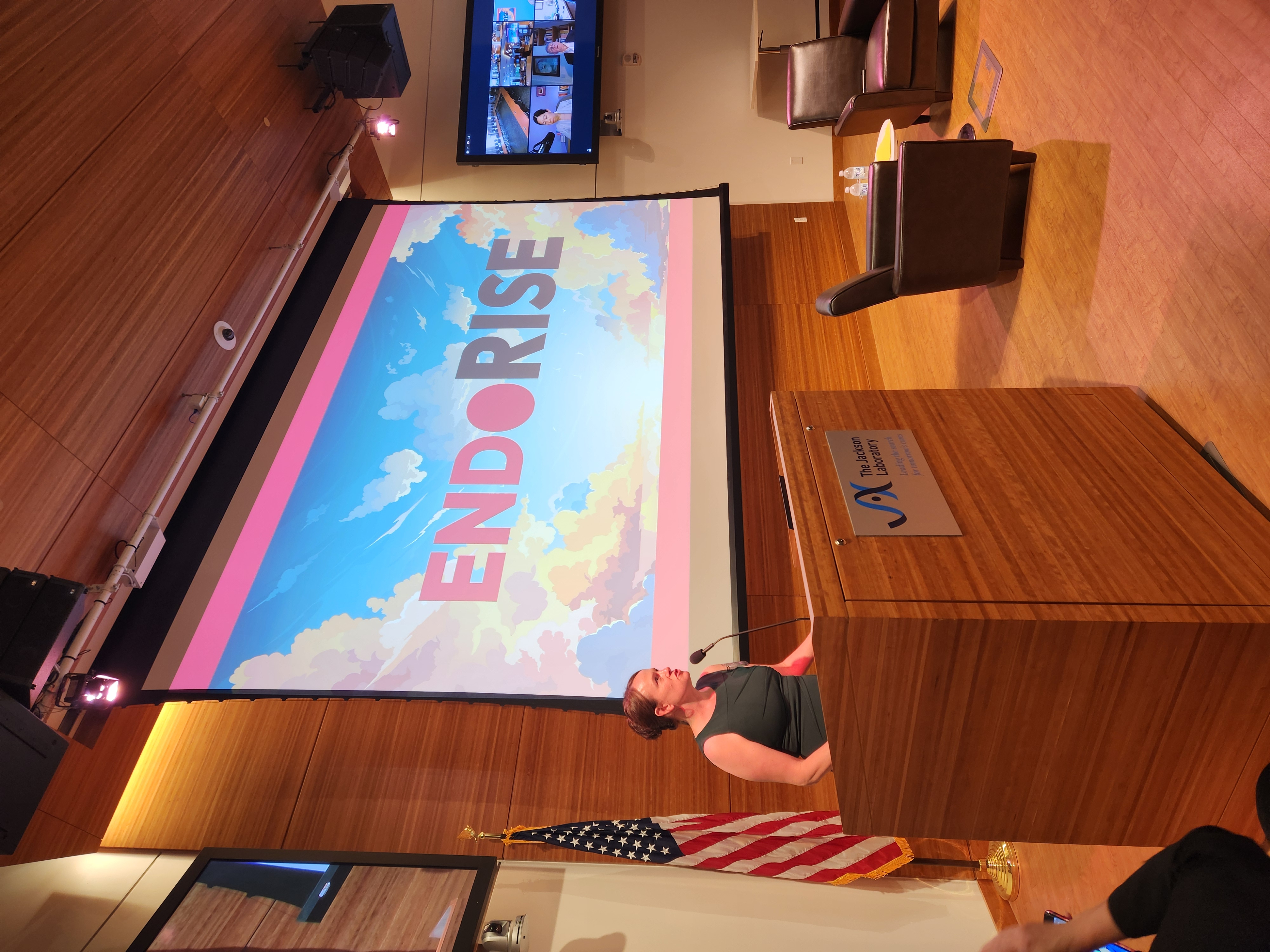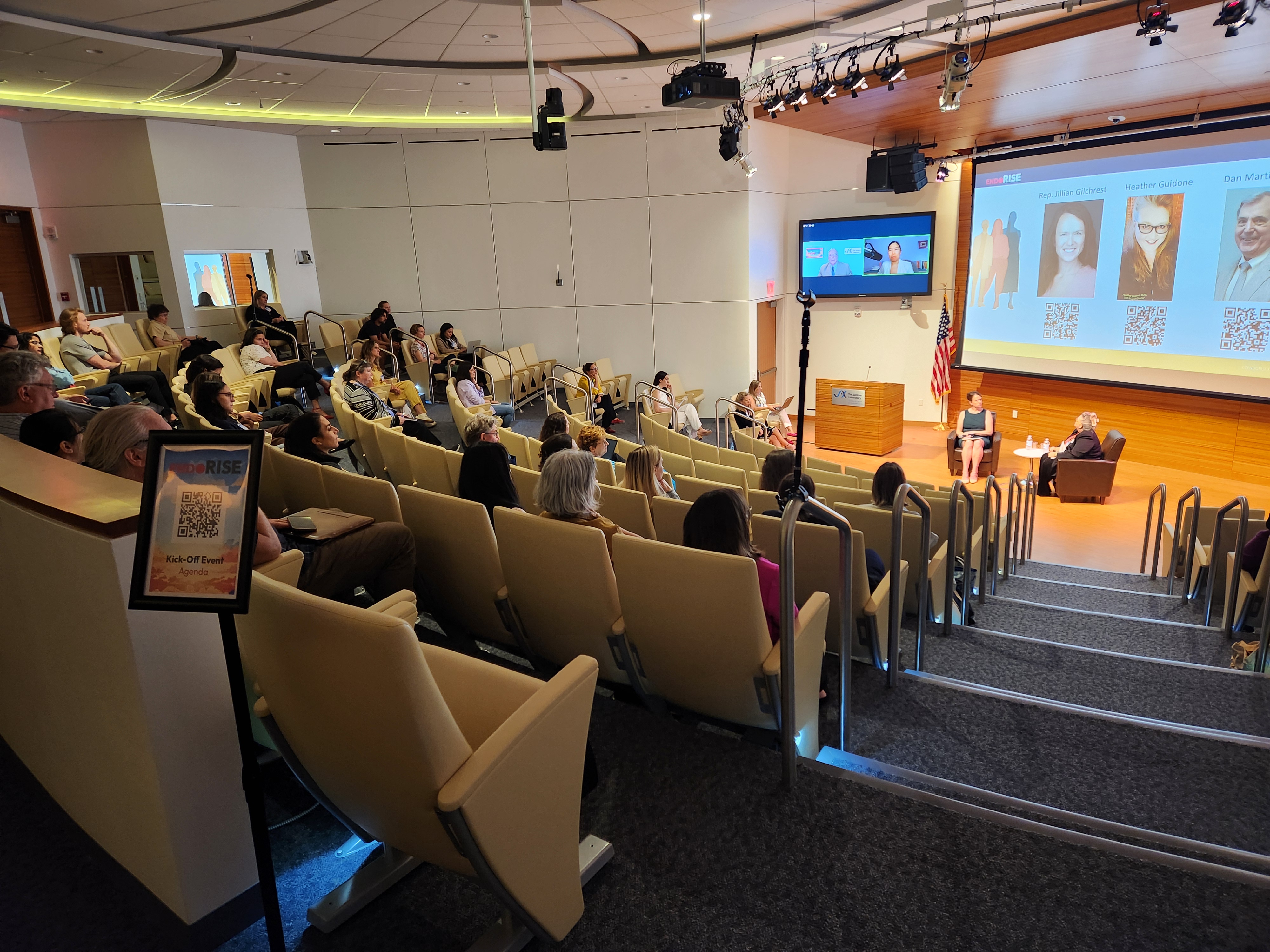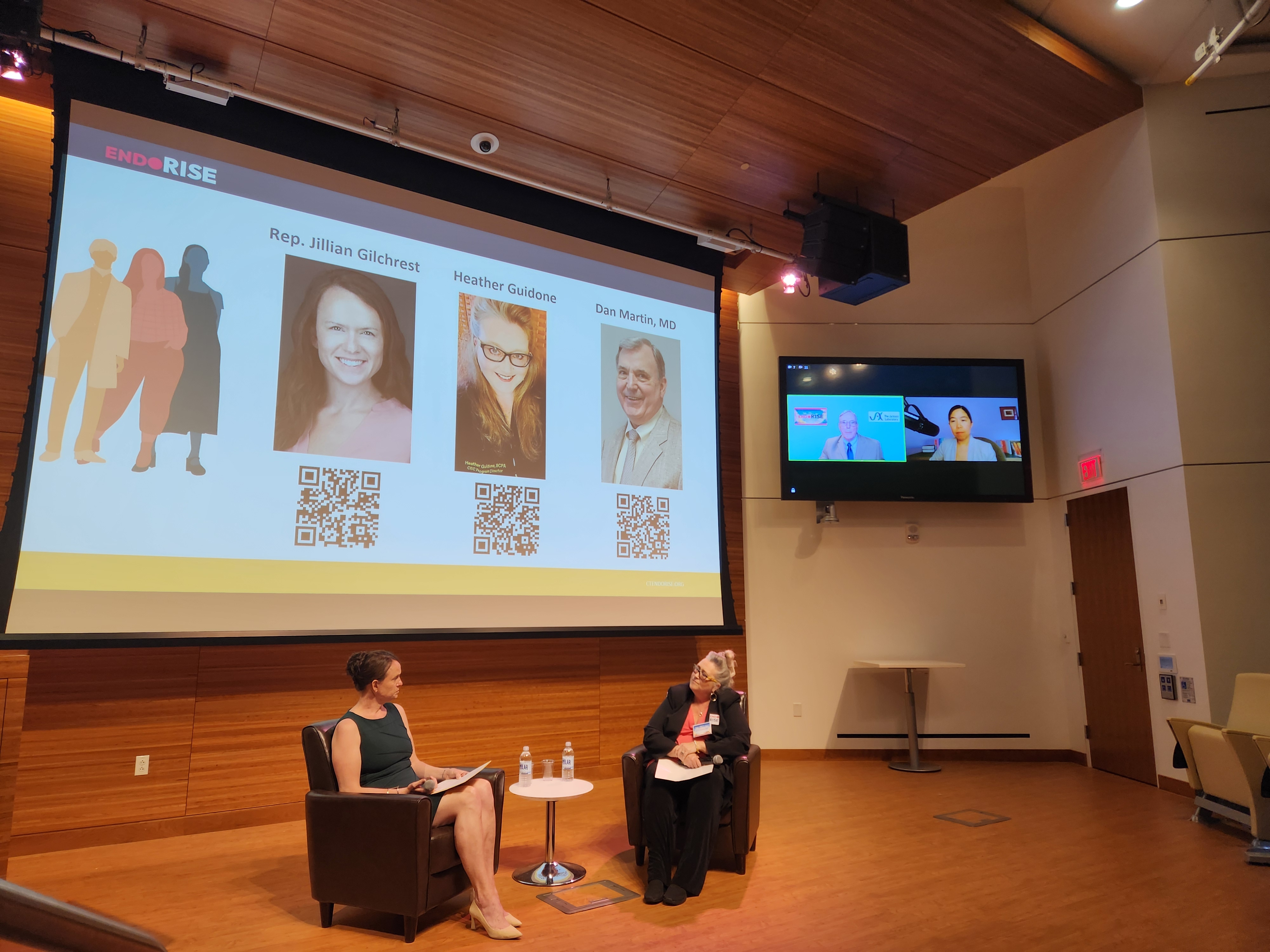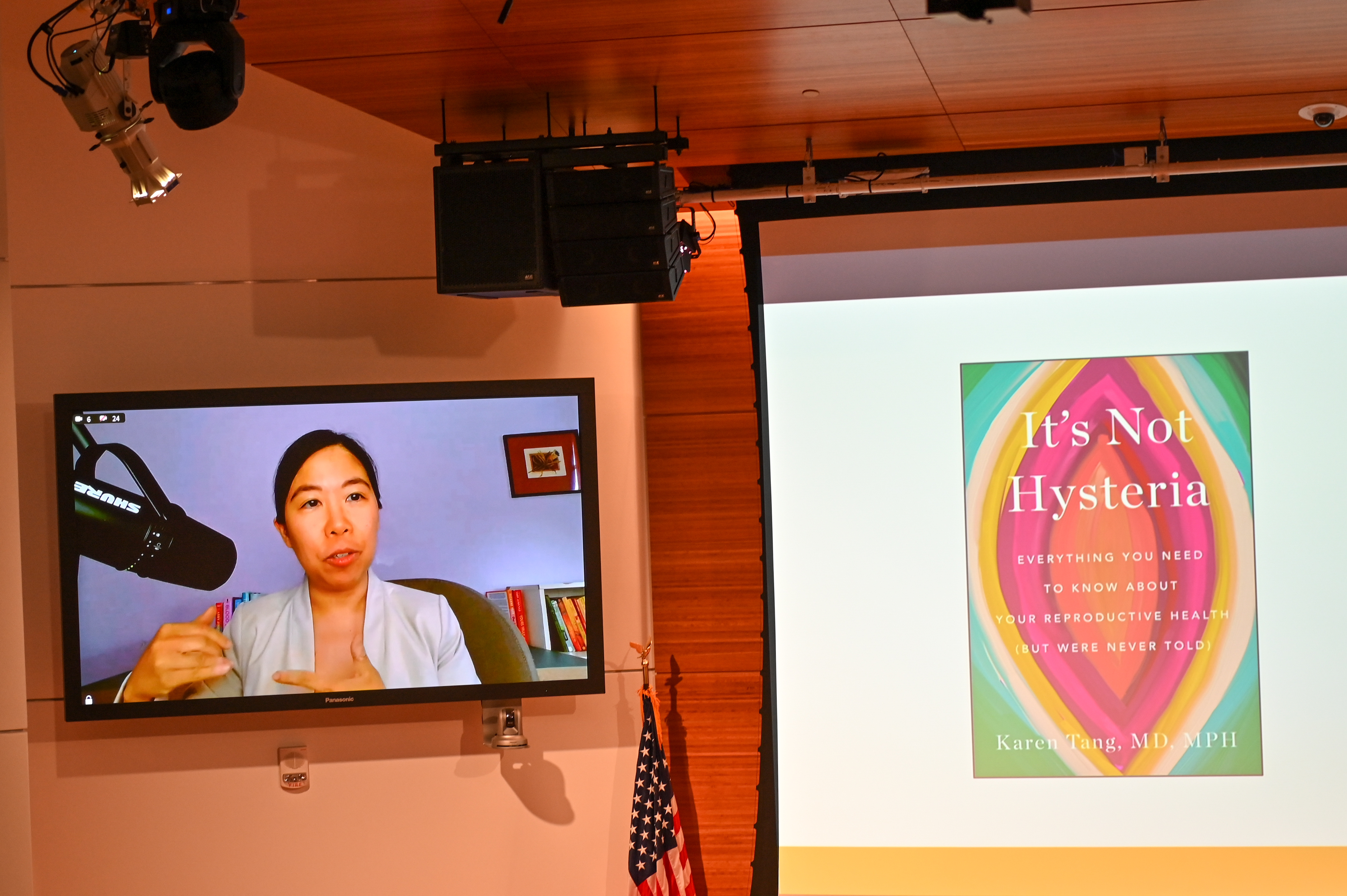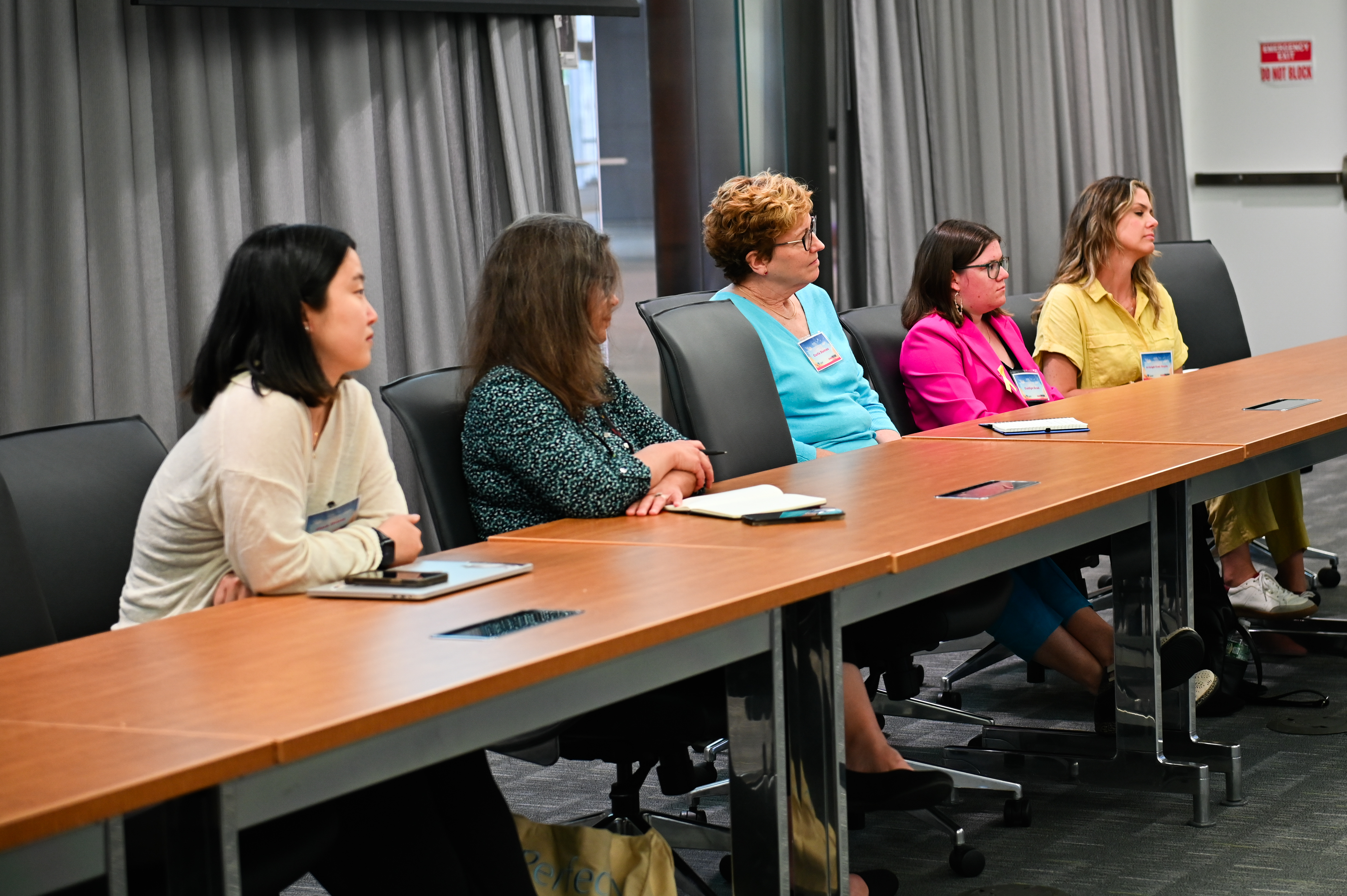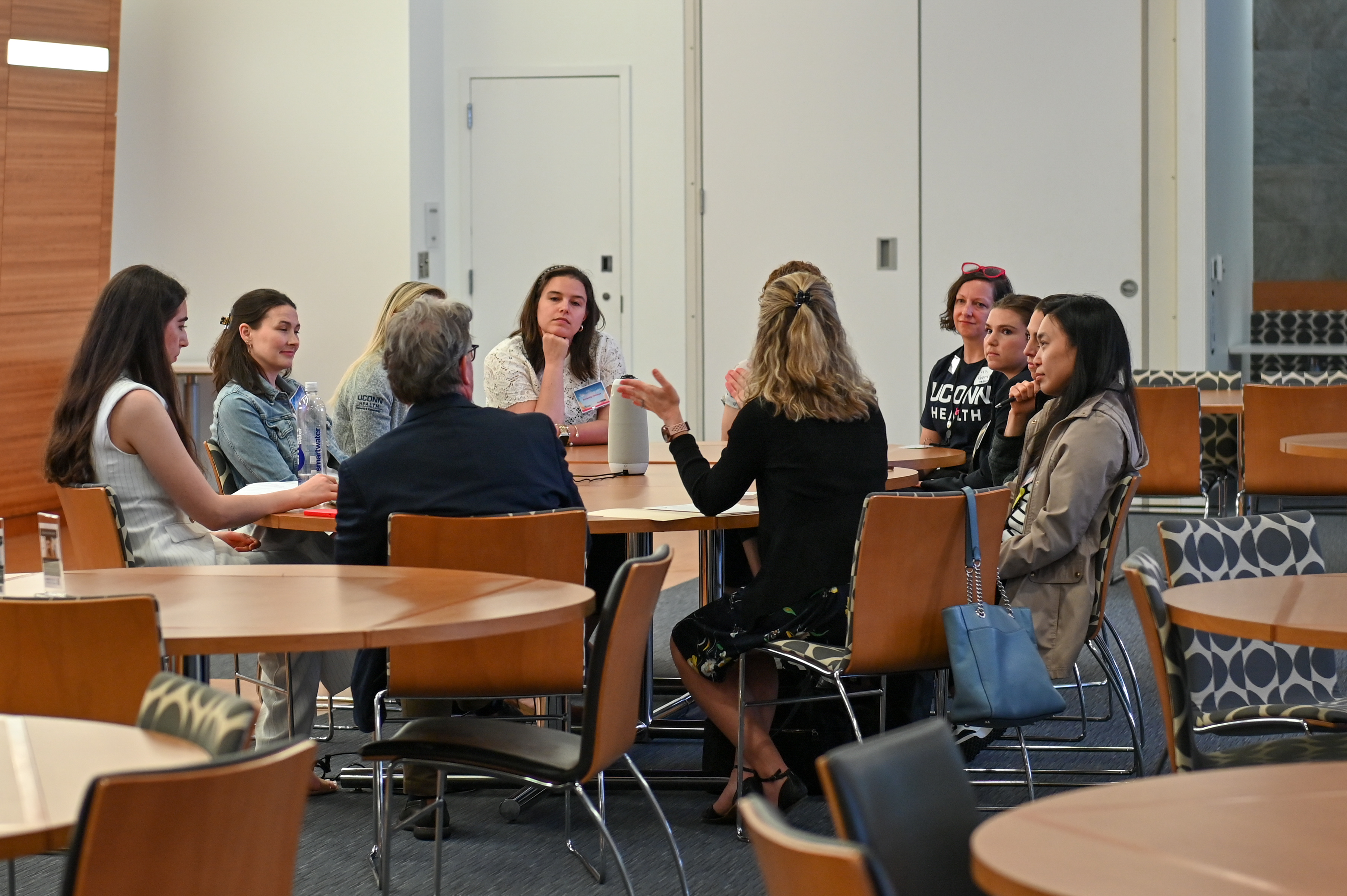Date: 2024-06-06
EndoRISE 2024 Event Report: A Transformative Step in Endometriosis Research and Awareness
As the hub of innovation and collaboration, The Jackson Laboratory in Farmington, Connecticut, hosted the inaugural EndoRISE event, on June 6, 2024. This momentous occasion brought together healthcare providers, patients, advocates, and researchers to celebrate the launch of the EndoRISE foundation, a groundbreaking state-supported initiative focused on endometriosis. The foundation aims to address this often-misunderstood condition through a public, multi-institutional biorepository of diverse data and specimens, enabling significant strides in research and fostering clinical and industry collaborations.
The event commenced with a keynote address by Representative Gilchrest, who introduced the EndoRISE foundation's mission and vision. Highlighting its unique status as a state-supported endeavor, Gilchrest emphasized the foundation's role in advancing endometriosis research and treatment. The biorepository, a central component of EndoRISE, promises to accelerate scientific discoveries and improve patient outcomes.
Dr. Karen Tang, a board-certified minimally invasive gynecologic surgeon at Thrive Gynecology and a consultant for the World Health Organization, delivered a powerful keynote speech. Dr. Tang shared her journey as a gynecologic surgeon and her efforts to raise awareness about reproductive rights and gynecological health on social media. She stressed the importance of dismantling the stigmas surrounding reproductive health conditions, which are frequently misdiagnosed or dismissed.
Following Dr. Tang’s inspiring talk, a panel discussion on endometriosis policy and funding took place. Esteemed leaders in advocacy, education, research, and policy, including Heather Guidone, a board-certified patient advocate and program director at the Center for Endometriosis Care, and Dr. Dan Martin, scientific and medical director of EndoFound, explored the evolution of national funding for women's health research. They underscored the need for continued advocacy at state and federal levels to achieve substantial progress in addressing endometriosis.
The event then transitioned to breakout sessions designed to foster collaboration and idea-sharing among attendees. Here are the highlights from each group’s discussions:
Healthcare Provider Workgroup
Participants in the healthcare provider group focused on enhancing patient care through better methods of asking about pelvic pain and comprehensive symptom tracking. They acknowledged the need for organized, thorough approaches to history-taking, especially by specialists and physical therapists. Discussions also covered educational strategies for providers, such as undergraduate outreach, resident education, and continuous medical education (CME) programs. The group also proposed developing patient resources like brochures, questionnaires with QR codes, and symptom-tracking apps in collaboration with existing cycle tracking applications. Additionally, they emphasized the importance of reaching underserved populations with resources in multiple languages and community engagement efforts.
Researcher Workgroup
Researchers discussed the challenges and opportunities in advancing endometriosis research. Key issues included the need for more funding, faster access to samples, and increased diversity in research populations. The biorepository was highlighted as a pivotal resource to expedite sample collection and support comprehensive studies. Participants explored the potential for leveraging existing funding sources and collaborations with the pharmaceutical industry. They also emphasized the importance of diverse samples, including younger women and those from minority backgrounds. The group identified a need for standardized operating procedures (SOPs) for biorepositories and discussed innovative approaches like studying menstrual effluent as a non-invasive sample collection method.
Patient/Advocate Workgroup
Patients and advocates focused on strategies to spread awareness and combat misinformation about endometriosis. They proposed initiatives like public service announcements with the Department of Public Health and educational programs targeting school nurses and anatomy classes. The group stressed the need for clear referral pathways for students in need and better education for primary care and emergency room doctors. They also highlighted the importance of internal institutional communications and programs to raise awareness among healthcare providers.
The EndoRISE event marked a significant step forward in the fight against endometriosis, bringing together diverse stakeholders to share insights, ideas, and strategies. With the foundation's innovative biorepository and commitment to collaboration, the future holds promise for improved understanding, treatment, and support for those affected by this challenging condition
See upcoming events
See previous events
As the hub of innovation and collaboration, The Jackson Laboratory in Farmington, Connecticut, hosted the inaugural EndoRISE event, on June 6, 2024. This momentous occasion brought together healthcare providers, patients, advocates, and researchers to celebrate the launch of the EndoRISE foundation, a groundbreaking state-supported initiative focused on endometriosis. The foundation aims to address this often-misunderstood condition through a public, multi-institutional biorepository of diverse data and specimens, enabling significant strides in research and fostering clinical and industry collaborations.
The event commenced with a keynote address by Representative Gilchrest, who introduced the EndoRISE foundation's mission and vision. Highlighting its unique status as a state-supported endeavor, Gilchrest emphasized the foundation's role in advancing endometriosis research and treatment. The biorepository, a central component of EndoRISE, promises to accelerate scientific discoveries and improve patient outcomes.
Dr. Karen Tang, a board-certified minimally invasive gynecologic surgeon at Thrive Gynecology and a consultant for the World Health Organization, delivered a powerful keynote speech. Dr. Tang shared her journey as a gynecologic surgeon and her efforts to raise awareness about reproductive rights and gynecological health on social media. She stressed the importance of dismantling the stigmas surrounding reproductive health conditions, which are frequently misdiagnosed or dismissed.
Following Dr. Tang’s inspiring talk, a panel discussion on endometriosis policy and funding took place. Esteemed leaders in advocacy, education, research, and policy, including Heather Guidone, a board-certified patient advocate and program director at the Center for Endometriosis Care, and Dr. Dan Martin, scientific and medical director of EndoFound, explored the evolution of national funding for women's health research. They underscored the need for continued advocacy at state and federal levels to achieve substantial progress in addressing endometriosis.
The event then transitioned to breakout sessions designed to foster collaboration and idea-sharing among attendees. Here are the highlights from each group’s discussions:
Healthcare Provider Workgroup
Participants in the healthcare provider group focused on enhancing patient care through better methods of asking about pelvic pain and comprehensive symptom tracking. They acknowledged the need for organized, thorough approaches to history-taking, especially by specialists and physical therapists. Discussions also covered educational strategies for providers, such as undergraduate outreach, resident education, and continuous medical education (CME) programs. The group also proposed developing patient resources like brochures, questionnaires with QR codes, and symptom-tracking apps in collaboration with existing cycle tracking applications. Additionally, they emphasized the importance of reaching underserved populations with resources in multiple languages and community engagement efforts.
Researcher Workgroup
Researchers discussed the challenges and opportunities in advancing endometriosis research. Key issues included the need for more funding, faster access to samples, and increased diversity in research populations. The biorepository was highlighted as a pivotal resource to expedite sample collection and support comprehensive studies. Participants explored the potential for leveraging existing funding sources and collaborations with the pharmaceutical industry. They also emphasized the importance of diverse samples, including younger women and those from minority backgrounds. The group identified a need for standardized operating procedures (SOPs) for biorepositories and discussed innovative approaches like studying menstrual effluent as a non-invasive sample collection method.
Patient/Advocate Workgroup
Patients and advocates focused on strategies to spread awareness and combat misinformation about endometriosis. They proposed initiatives like public service announcements with the Department of Public Health and educational programs targeting school nurses and anatomy classes. The group stressed the need for clear referral pathways for students in need and better education for primary care and emergency room doctors. They also highlighted the importance of internal institutional communications and programs to raise awareness among healthcare providers.
The EndoRISE event marked a significant step forward in the fight against endometriosis, bringing together diverse stakeholders to share insights, ideas, and strategies. With the foundation's innovative biorepository and commitment to collaboration, the future holds promise for improved understanding, treatment, and support for those affected by this challenging condition
